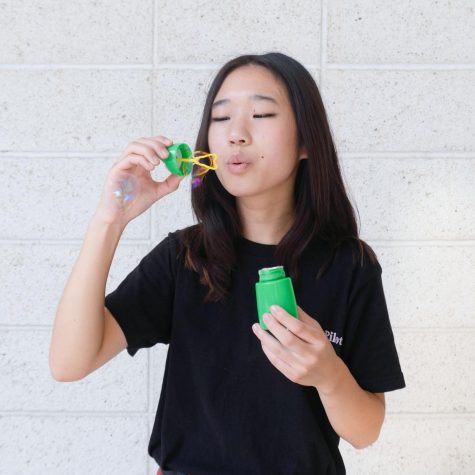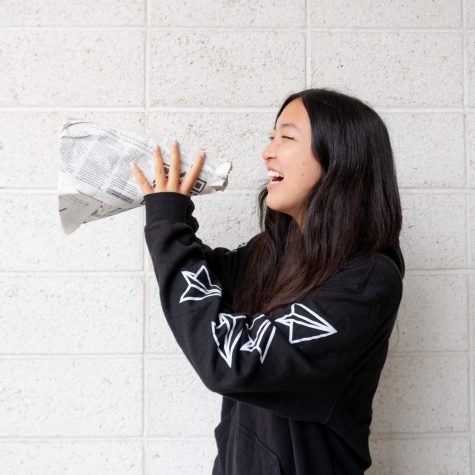Stepping Towards Earth’s Crises
Individuals share the personal changes they are making to improve the environment
Courtesy of Natalie Ng, Dylan Chung, Lauren Hsu and Bia Shok
With the onset of the COVID-19 pandemic, human activity came to a standstill, giving the natural world time to heal. Spending seemingly-endless days in quarantine allowed many across the globe, including those in the Portola High community, to examine their individual impacts on the environment and make personal changes for the better.
Dylan Chung, freshman

“In quarantine, I started exposing myself to more of that content, sustainable eating. At the end of summer, I started eating more plant-based meals.
I was vegetarian for maybe a month until I became vegan. That helped a ton, just because I see it everywhere: veganism is the number-one way that an individual can lower their impact on the environment.
I think what turns a lot of people off to the idea of veganism is they don’t want to make such a big jump. They don’t want to cut all these foods that they like, and they like eating.
You shouldn’t think of it that way. You should think of it as appreciating it enough not to have it as much. You don’t have to be 100% [vegan] and never eat meat or never eat dairy … Doing something is better than doing nothing.”
Andrew Kranz, science teacher

“I think we’re doing the best that we can, and it’s part of our curriculum here … We talk about the impact of human activity on the environment and climate change, greenhouse gases, and try to get students to think about ways they could, and we as a society can potentially improve and undo some of the damage that we’re doing to our environment.
There’s been this narrative over the past few decades that if we, as individual citizens, don’t drive as much or turn off the lights when we’re out of the room, we can make a difference in climate change.
And that’s true; it does impact it, but I personally think that we need to start implementing policies and holding large corporations and manufacturing entities responsible for the damage they’re doing. Most of the damage comes from those entities and not necessarily from the individual people.”
Natalie Ng, senior

“At the [Aquarium of the Pacific], I’m involved in the Teen Climate Council, and our goal is to spread awareness of teen involvement in global and environmental issues such as climate change.
A lot of people seem to have this mentality that just because we didn’t necessarily cause the problem, we don’t have to be a part of the solution, but I don’t think that’s true. I think that even as younger people who haven’t been on this planet for that long, we still have a responsibility to help our environment.”
Emily Nguyen, junior

“I didn’t really take action until freshman year. For my Genius Project, I made a device that conserves freshwater. After that, I wanted to create a club to further spread awareness because it’s a really important issue, and I want a lot more of our youth to be aware of it.
I started this environmental club, and we’ve gotten involved with CCL, Citizens’ Climate Lobby … CCL has youth action teams, and they’re attempting to reach out to high school populations and to get them to participate in these issues and put their word in.
We definitely should be taking action as a collective rather than individually … Younger generations and Gen Z are the future of the world right now. Our opinion is very, very important.”
Your donation will support the student journalists of Portola High School. Your contribution will allow us to purchase equipment and cover our annual website hosting costs.

Lauren Hsu is your Opinion Editor and Co-Social Media Manager for her third and final year on the Pilot staff. She is looking forward to making even more...

Claudia Lin is your co-editor-in-chief for her third year on the Pilot. She is looking forward to making as many memories as possible for her last year...




